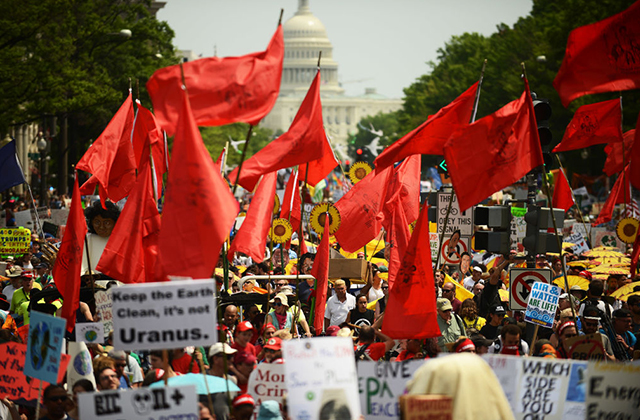A new study suggests that the research that determined the temperature baseline used in the Paris Agreement may have left out critical information. The result: There may be less time than previously believed to address global warming.
According to a Scientific American article published Tuesday (July 25), “Countries in the Paris climate agreement set a target of keeping warming below 2 degrees Celsius by curbing carbon emissions compared to their preindustrial levels. But a new study shows that the preindustrial level used in the agreement, based on temperature records from the late 19th century, doesn’t account for a potential century of rising temperatures caused by carbon dioxide emissions.” The missing data covers gases released from about 1750 to 1875, which researchers believe could add one-fifth of a degree to the current baseline temperature.
“When you take that into account, it turns out we have 40 percent less carbon to burn than we thought we had,” study researcher and Pennsylvania State University climatologist Michael Mann said. Consequently, nations that signed the Paris Agreement would need to be more aggressive to meet its intended goals.
On June 1, President Donald Trump announced that the United States would withdrawal from the accord, the first successful global effort in which 194 countries pledged to reduce their greenhouse gas emissions to combat climate change. Though it will take four years for this to officially happen, his administration has already cut U.S. involvement in various ways, including issuing executive orders that will make it impossible to reduce greenhouse gas emissions to the levels required by the accord. Trump also disapproves of the Green Climate Fund, which was created as part of the United Nations Convention Framework on Climate Change—the umbrella that covers the Paris Agreement. It is intended to allocate resources—from wealthier, developed countries like the United States—to developing nations that will bear the brunt of climate change’s impact.
Mann, who worked on the study with researchers from the universities of Edinburgh and Reading in the United Kingdom, believes that while this new information heightens the dire reality of global warming, the Paris Agreement is still the best policy to bring change.
